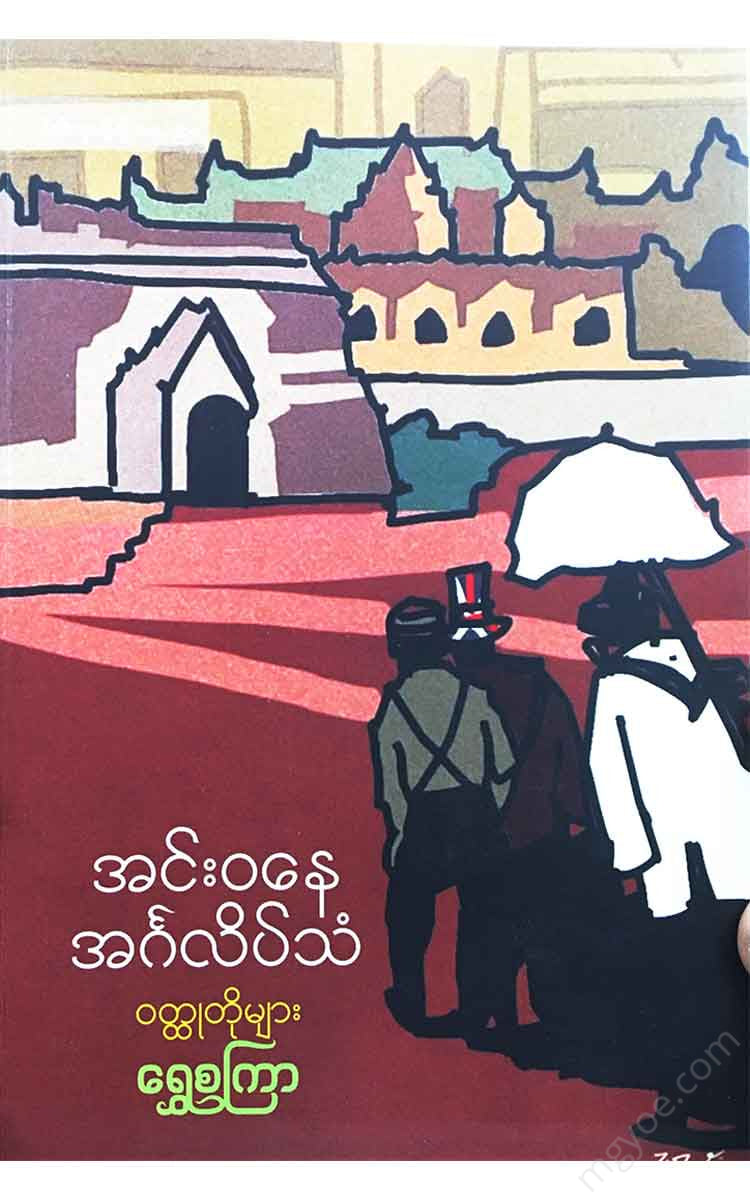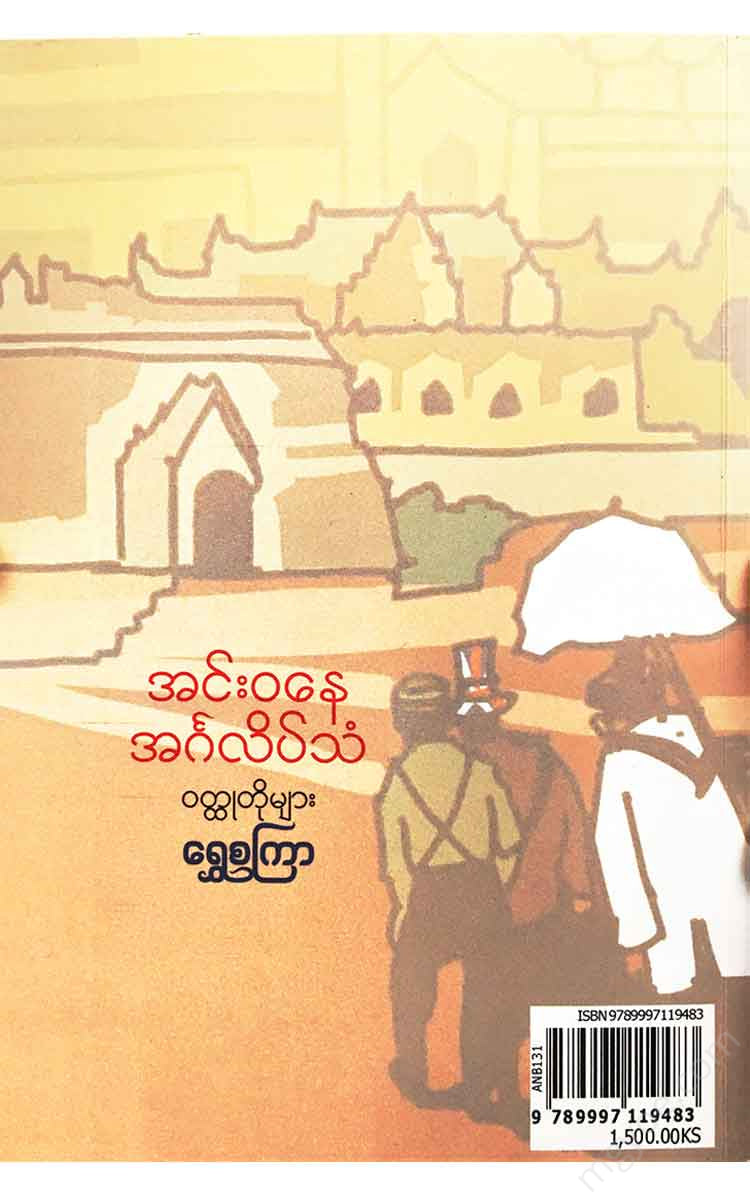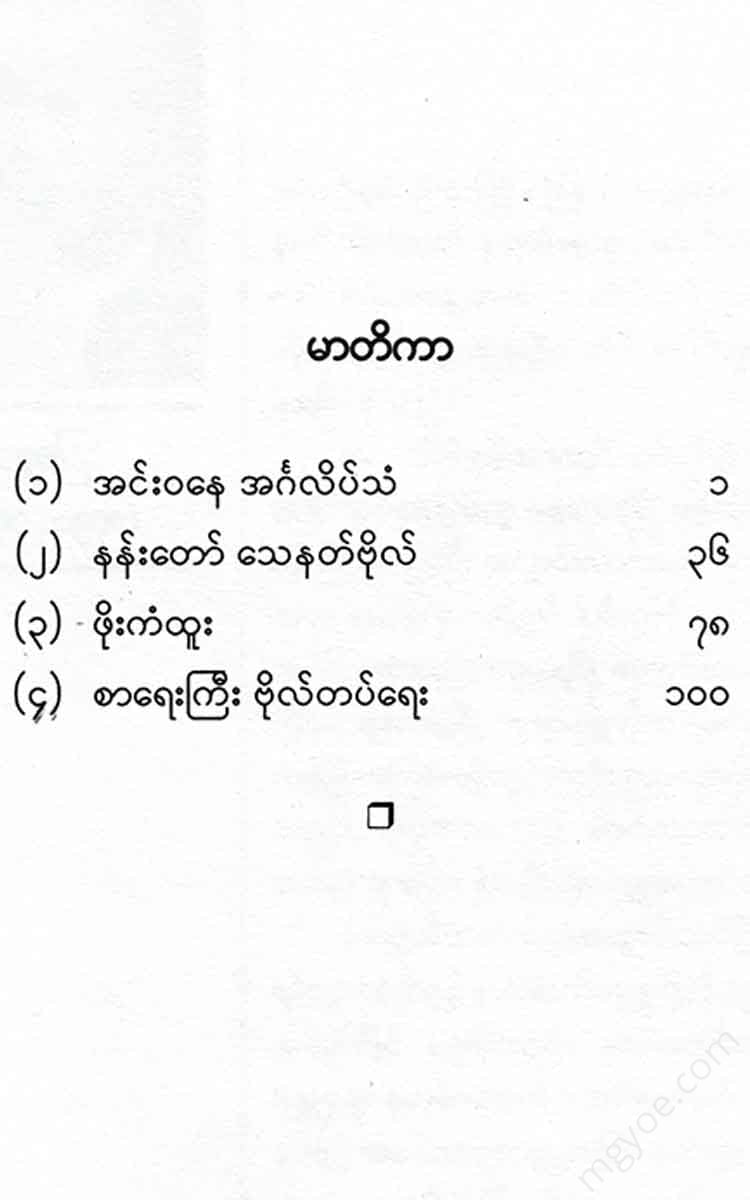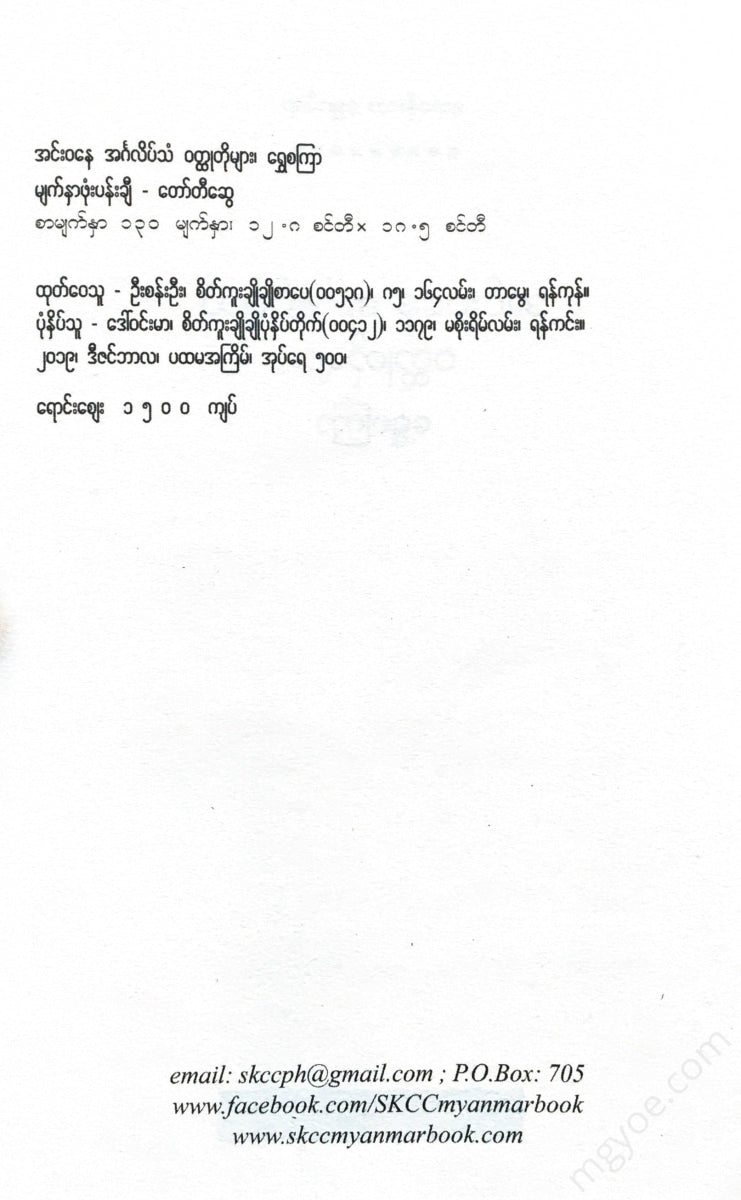စိတ်ကူးချိုချိုစာပေ
Golden Squirrel - Invaney English Short Stories
Golden Squirrel - Invaney English Short Stories
Couldn't load pickup availability
Inva Nay English Voice
( 1)
According to the seventh treaty of Rantapo, Major Burney, who was appointed as the permanent ambassador to Burma by the British government, along with 39 white and black servants, arrived at the capital of Yadanarpur, Burma, on Thursday, April 24, 1830, the 1st day of the first lunar month of the Kason month of the Burmese calendar, carrying gifts sent by the Viceroy of India to His Majesty the King of Burma. Among the 39 followers were Lieut. George Burney, Burney's brother, and Good, a physician (an assistant physician), Cotton , an interpreter, and Edward, a clerk and interpreter . Edward was also a clerk. He was also an interpreter. Burney's brother, Lieutenant George Burney, was the assistant embassy officer. In addition, there was a Burmese scribe named San Hla who could write Burmese and a Burmese Muslim named Bo Mya who was a Burmese language teacher. Bo Mya, the Burmese language teacher, was also proficient in Hindustani and acted as an interpreter for the Indian diplomats at the embassy and occasionally wrote. The gift to the king was a set of horse-drawn implements and two six-pounder cannons. Upon arrival, he entered the palace and was placed in a house near the elephant moat on the west side of the Golden City. The house was located on the northwest corner of the Golden City, next to the elephant moat. It was a house built by the Spanish merchant Lanciago in the Golden City of Inwa for the purpose of housing foreign diplomats. Major Javanese had a man named Cotton who was a mere interpreter, and a man named Edward who was both a scribe and interpreter. In addition to having a Burmese language teacher named Bo Mya, a Burmese Muslim, Barney himself was quite proficient in Burmese. Because Barney knew in advance that he would one day be appointed to Burma, he had studied Burmese history and Burmese history and taught him to speak Burmese fluently. Barney had also been a temporary district governor in Dawei. In particular, to avoid any difficulties when Barney arrived in the Golden City, he requested a Burmese man named San Hla, who was well-versed in the Golden City, from the Rangoon minister, King Maha Min Hla Raja (U Khaing), and appointed him as a Burmese scribe to write Burmese. San Hla was originally from Thanlyin. He had lived in the city of Innwa for seven years since he was 19 years old. He came to the Rangoon minister last year and was the minister’s house clerk. While in Innwa, San Hla had been to the Hluttaw, the court, and the court of a member of the parliament. He had taught him writings related to the Burmese and the Burmese Empire, and he was able to compile and write letters related to the palace, the palace, the parliament, the court, and the Burmese Empire. In addition to feeding San Hla, he was given 30 (thirty) Myanmar kyats per month as a stipend, and he also regularly gave him linen, cloth, and medical cloths from other countries for clothing. To Mya, a Burmese Muslim who came with him as a Burmese language teacher, only knew the local Burmese language and could not understand, speak, or write the words used in the three palaces, parliament, the palace, and the Burmese Empire. Bo Mya had just arrived in the Golden City of Innwa and did not know anything about the Golden City, so San Hla was the leader and guide him everywhere. However, Bo Mya's salary was the same as San Hla's, which was 30 kyats, and his status was the same.
Note. . This British ambassador, Major Burney, who was always present in the golden city of Inwa, is called by the Burmese as Miss Burney. His full English name is Major, Henry Burney. Burney was 38 years old at the time and Burney lived in Inwa for seven years. Edward, who was a writer and interpreter and was considered the most important person in the British embassy, was called by the Burmese as Echin. Therefore, in the Konbaungsak Maharajwin Daw Gyi, chapter on page 1193 of the
“ Then, the English officials in the capital of Yadanarpur, Miss Bowrani and Esin, appealed to the great king of Saddansin, the great king of the kingdom of the living,” etc. It was also written in the Yeting Mawkun of Shwe Bo, written by the second Nawaday, the chief of the Wetmasuk city.
“ Kaladansay, with his personality, the king’s messenger, the messenger, the messenger, the brother, the brother, the path, the path, the Koli, the absolute, the Konbaung palace, the gift of friendship, the place to send, the place, the mother, the unknown king, not for the English,” etc.
Edward, also known as Echin, continued to study Burmese and Burmese from San Hla whenever he had free time. The reason was that the Burmese that Edward had learned was only the local dialect of Lower Burma, and he did not understand the words of the Golden City, the Three-Horned Palace, the Parliament, the Court, and the British Council at all. Edward was not alone. Cotton and Varney, who were only translators, were also in this way, and they had only just heard and studied the words of the Golden City, the Three-Horned Palace, the Parliament, the Court, and the British Council. For them, the best teacher was San Hla, who was always ready to ask questions until they understood them without hesitation or fear, and they gave San Hla priority and favor. Edward told San Hla that he would teach her English and that she would teach him English. San Hla bitterly refused, saying that she was not interested in learning such a difficult and incomprehensible language and speech. Edward smiled at the way San Hla spoke. He also felt sorry for San Hla. Because he thought that if she could speak English, she would be of invaluable benefit. In fact, they would prefer someone who could not speak English. Because if she could speak English, she would be able to travel easily and smoothly in social situations and work, but they would be able to know what she was saying and do and plot to get it to the ears of the Burmese government.
In fact, at that time, there were almost no Burmese people in Burma who could speak English. Therefore, when the Randapo Treaty was signed during the war, there were no Burmese who could speak English on the Burmese side, so two Burmese-speaking Americans, Judson, alias Judson, and Saya Preet, alias Dr. Price, were used as interpreters. San Hla was to show the group of Barney and Edwards around the palace, the palace, the parliament, the court, the British palaces, the markets, the schools, and the gardens. From the market to the food and drink, San Hla was the only one who guided them, and a group of kulaks and San Hla were to be made the elders. San Hla was a merchant and a man of honor. San Hla was a man who was always in a hurry and was not deceitful or deceitful. He was honest, Because he was a loyal person, Varney and Edward and a group of other people trusted and loved San Hla. San Hla was not only useful in writing Burmese letters but also in all other areas, and was like a bottom box for the entire British embassy. San Hla did not care about the work, but whether it was his duty or not, he worked as a clerk who could do the job and was not afraid to do it, and he earned the satisfaction of Varney and the entire embassy.
(2)
The main tasks for Barney were to open communication with the British territories on the border of Burma, to quickly collect the last installment of the one crore war indemnity owed from the Burmese, which was about twelve hundred thousand kyats, to promote British (English) trade, to provide assistance to the British subjects who were doing business in Burma, and to constantly monitor the Burmese royal government and collect and send news of the Burmese court.







